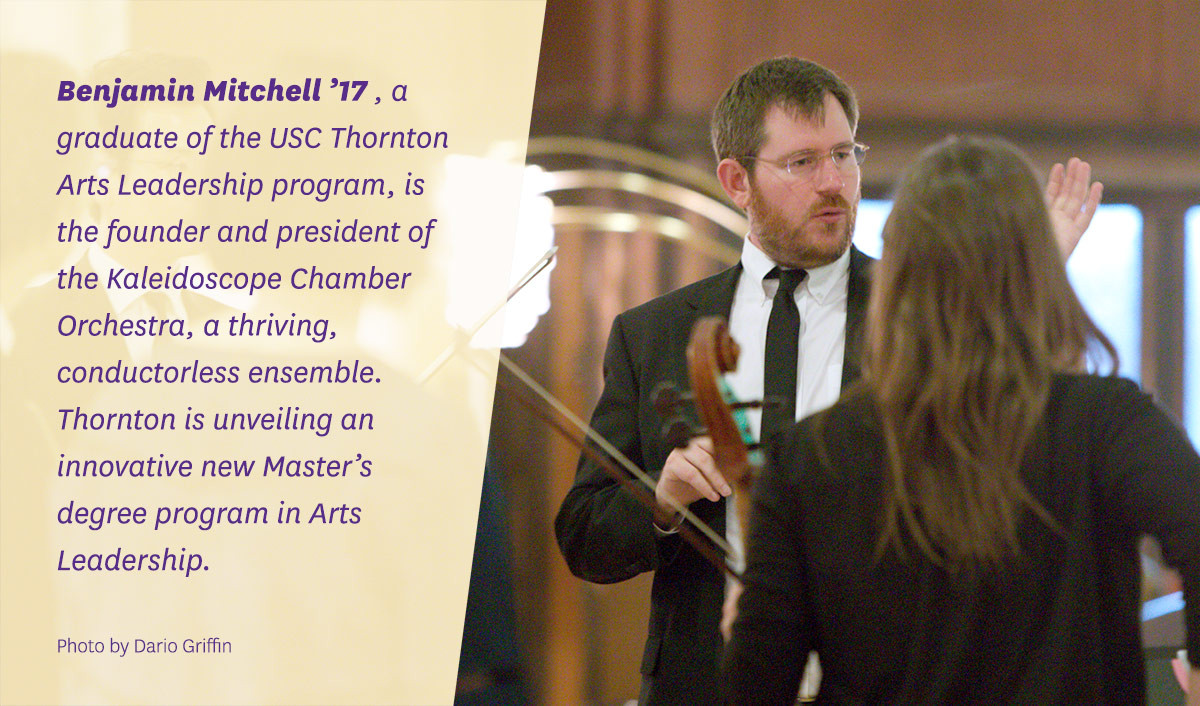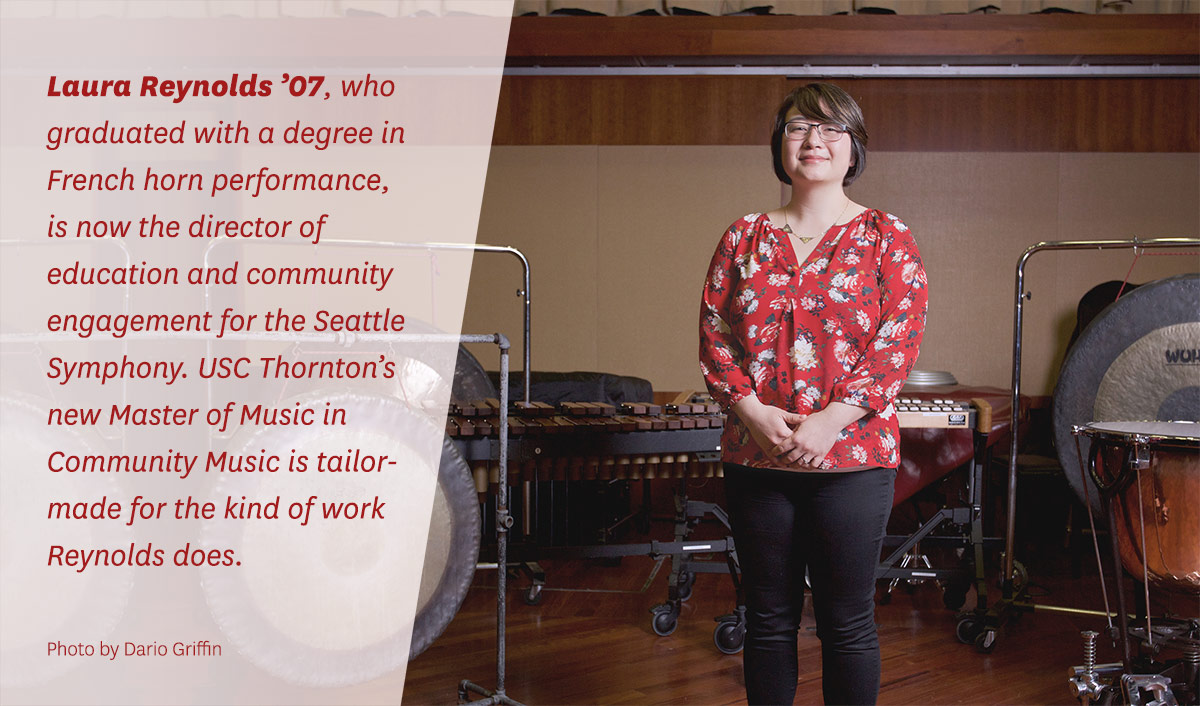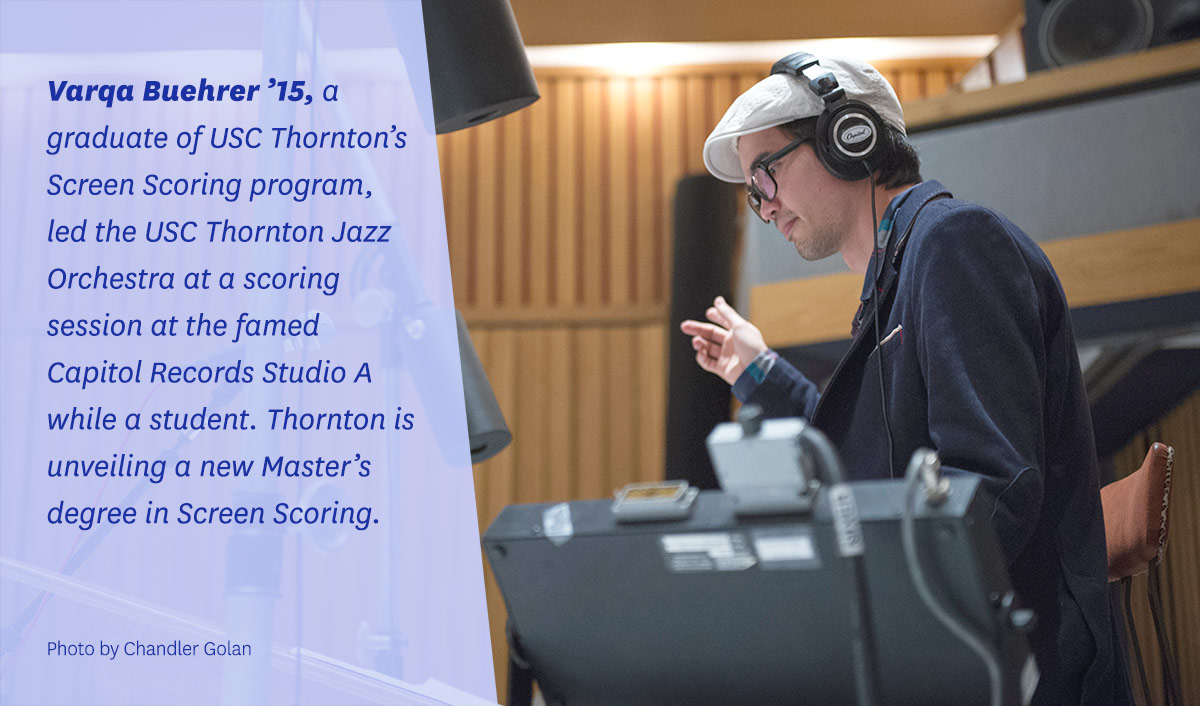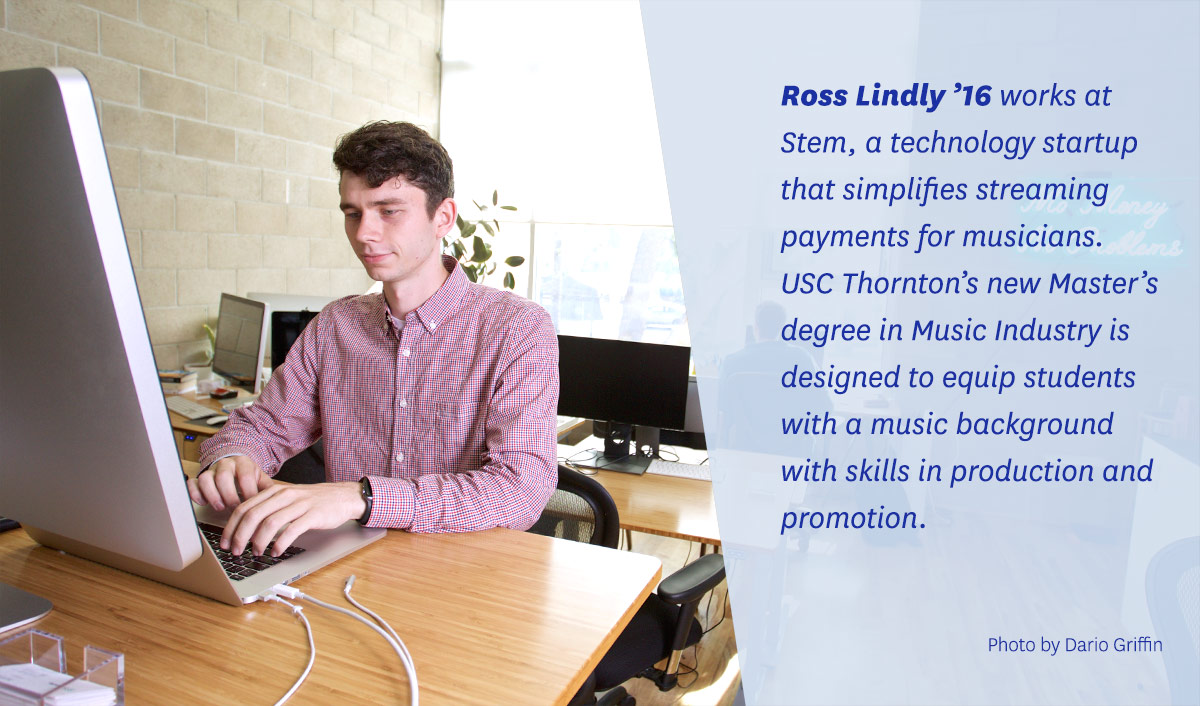The USC Thornton School of Music, continuing to reimagine music education in the 21st century, is unveiling four innovative new master’s degree programs in Arts Leadership, Community Music, Music Industry and and Screen Scoring.
The degrees are responding to a music industry and a music teaching and learning climate that is undergoing seismic changes. “We are trying to innovate our way ahead of the changes,” said Robert Cutietta, dean of USC Thornton. “Master’s degrees traditionally expand what you learn as an undergraduate. These five programs are designed to teach students new skills and to take their passions for a wide variety of music and turn them into new ways to imagine a contemporary music career.”
The programs vary in length from one to two years, and will begin in Fall 2018.
Two of the degrees – those in Community Music and Screen Scoring – are designed for students who hold undergraduate degrees in music performance or composition and want to expand their musical toolkit. The Arts Leadership masters’s accepts students with a bachelor’s (not necessarily in an arts-related field), but expects students to have three to five years as a working artist. The master’s in Music Industry will accept students without a previous music degree, but with a professional interest in music supervision, live concert promotion, music entrepreneurship and the recording industry.

All of the new degrees are the products of faculty committees taking hard looks at skills needed by musicians in business, education and community engagement.
Cutietta has emerged as one of the nation’s leading voices for reimaging music education. In addition to challenging his own faculty to create degrees that reflect current realities in the musical landscape, he has written and spoken widely on the topic. Recently, he was asked to write the closing chapter in a new book, Policy and the Political Life of Music Education (Oxford University Press), that looks at re-shaping education programs across the country.
The Arts Leadership degree is aimed at artists, arts administrators and cultural entrepreneurs who want to expand their personal vision and create a life and career for themselves in the arts. The degree takes advantage of the significant resources of all six arts schools at USC: music, art and design, architecture, dance, dramatic arts and cinematic arts, and graduates will be equipped to create and lead their own ensembles, programs and arts organizations around the world.

Combining skillsets in music education, community engagement and advocacy, the four-semester Master of Music in Community Music is focused on bringing music instruction and performance into non-traditional settings, such as prisons, hospitals, senior living communities and centers for marginalized and disadvantaged people of all ages. It’s a growing career option for musicians looking to move beyond the classroom or concert stage to explore fulfilling, service-oriented work.
Screen Scoring has been taught at USC Thornton for decades as a certificate program, but the highly-competitive, full-time program has been reimagined as a master’s degree. The two-semester program accepts a maximum of 20 students, who matriculate as a cohort. Students will learn how to compose, conduct and produce music for screens of all types and for live action and animated films, as well as video games and VR.

The program has always had close collaborations with the USC School of Cinematic Arts, but the master’s degree will allow students to take two of their courses at Cinematic Arts. As in the past, Screen Scoring students will compose and score music for at least five USC student films, creating relationships between composers and filmmakers that have been shown to extend into later professional collaborations.
The new Music Industry master’s degree starts in August and includes and summer mentorship. Instead of a thesis, students collaborate on a hands-on portfolio project, such as producing a live music event, rolling out an album campaign or creating a video series. The degree offers four emphasis options: Business of Live Promotion/Touring, Music Supervision and Visual Media, Performance, and Entrepreneurship. Courses in artist management, music publishing, music instrument manufacturing/distribution and radio are offered, as are business courses at the USC Marshall School of Business.

USC Thornton has been offering an undergraduate degree in Music Industry for 20 years, taking advantage of the school’s location in the undisputed epicenter of the music, film, television and video game industries. The new master’s degree is not a continuation for those holding the undergraduate degree in Music Industry. Rather, it is geared towards musicians and other students with a music background or a lifelong passion for music.
Los Angeles is home to all the major tour promoters, producing tens of thousands of concerts as well as major festivals. Talent agencies for all musical genres and supporting production houses also call the city home, which makes for excellent internship opportunities. The new master’s degree in Music Industry, like the other four new degrees, will take advantage of the extraordinarily vibrant arts environment in Los Angeles to create educational and professional experiences unavailable anywhere else.
Click here to learn more about our new Professional Master’s Degree Programs.